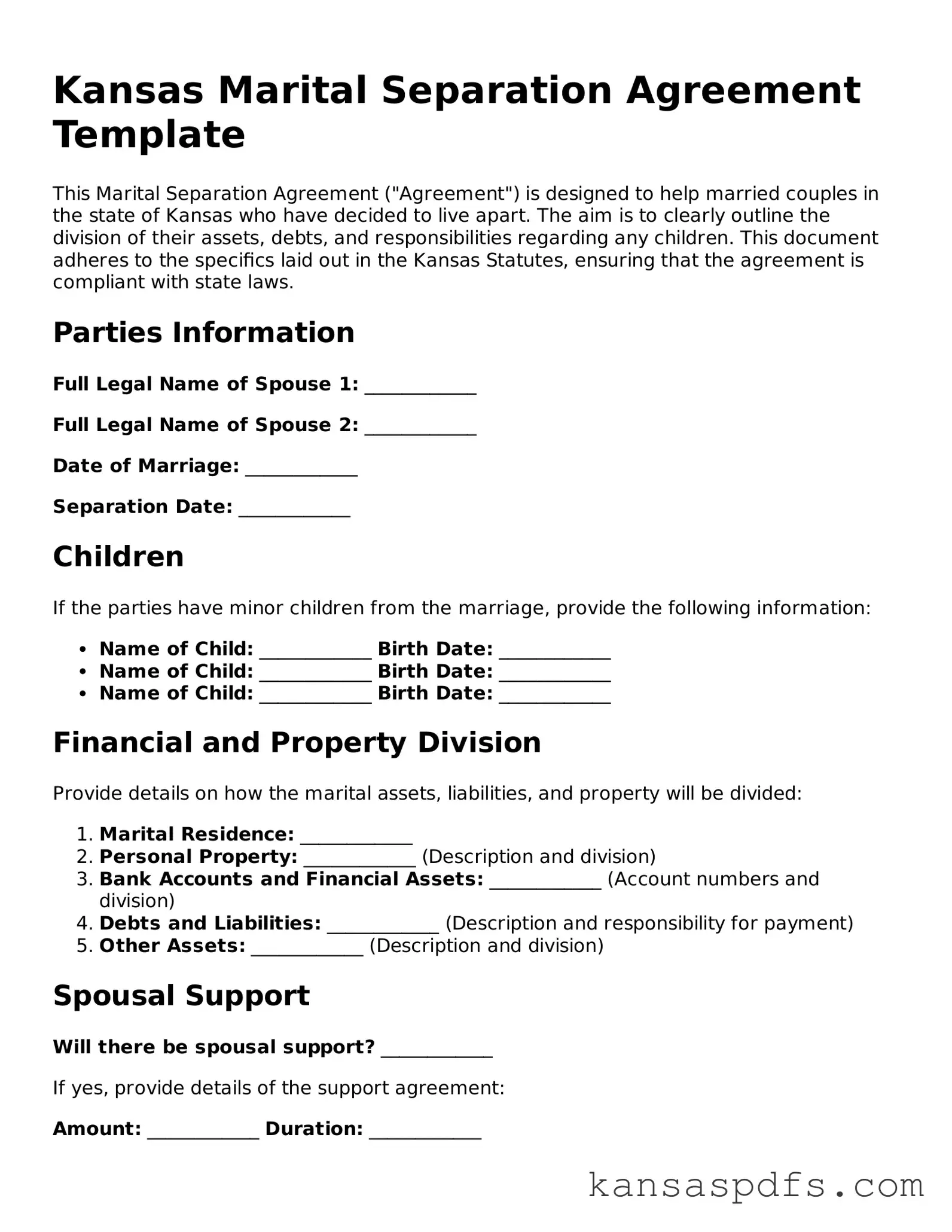What is a Kansas Marital Separation Agreement?
A Kansas Marital Separation Agreement is a legally binding document that outlines how spouses have agreed to divide their legal obligations and assets while they are separated but not yet divorced. This agreement can include terms regarding property division, debt allocation, child custody, and spousal support. It's crafted to clearly define each party's responsibilities during the separation period.
Do I need a lawyer to create a Marital Separation Agreement in Kansas?
While it's possible to create a Marital Separation Agreement in Kansas without legal aid, consulting with a lawyer is highly recommended. This ensures the document fully protects your rights and interests. Additionally, a lawyer can offer valuable advice on state laws that might affect the agreement's terms.
How does a Marital Separation Agreement differ from a divorce?
A Marital Separation Agreement is intended for couples who are taking a break from their marriage but are not yet ready to divorce. Unlike a divorce, which legally ends a marriage, a separation agreement outlines the duties and rights of each spouse during their separation period without terminating the marriage.
Is a Marital Separation Agreement legally binding in Kansas?
Yes, a Marital Separation Agreement is legally binding in Kansas when both parties have signed it and it has been notarized. However, for it to be enforceable, it must be fair, entered into without coercion, and both spouses must fully disclose their assets and debts.
Can a Marital Separation Agreement be modified?
A Marital Separation Agreement in Kansas can be modified if both parties agree to the changes and the modifications are documented in writing and signed by both spouses. For modifications related to child support or custody, court approval may be required to ensure the changes meet the child's best interests.
What happens if my spouse and I reconcile after creating a Marital Separation Agreement?
If you and your spouse decide to reconcile after creating a Marital Separation Agreement, you can either nullify the agreement or choose not to enforce it. This often involves drafting a new document stating your intent to dismiss the separation agreement, which should be signed and notarized.
What should I include in my Marital Separation Agreement?
Your Marital Separation Agreement should comprehensively cover all relevant aspects of your separation, including but not limited to asset and debt division, child custody and visitation, child support, spousal maintenance, and any other issues pertinent to your situation. Precision and clarity in outlining each party’s responsibilities are crucial.
How do I file a Marital Separation Agreement in Kansas?
To file a Marital Separation Agreement in Kansas, the signed and notarized document must be submitted to the district court in the county where either spouse resides. The court may review the agreement to ensure it complies with Kansas laws and regulations before approving it.
What are the benefits of having a Marital Separation Agreement?
There are several benefits to having a Marital Separation Agreement, including providing a clear legal framework that outlines each spouse's responsibilities and rights, potentially easing the process for an eventual divorce. It can also help manage expectations and reduce conflicts during the separation period, offering a sense of structure and financial stability.

